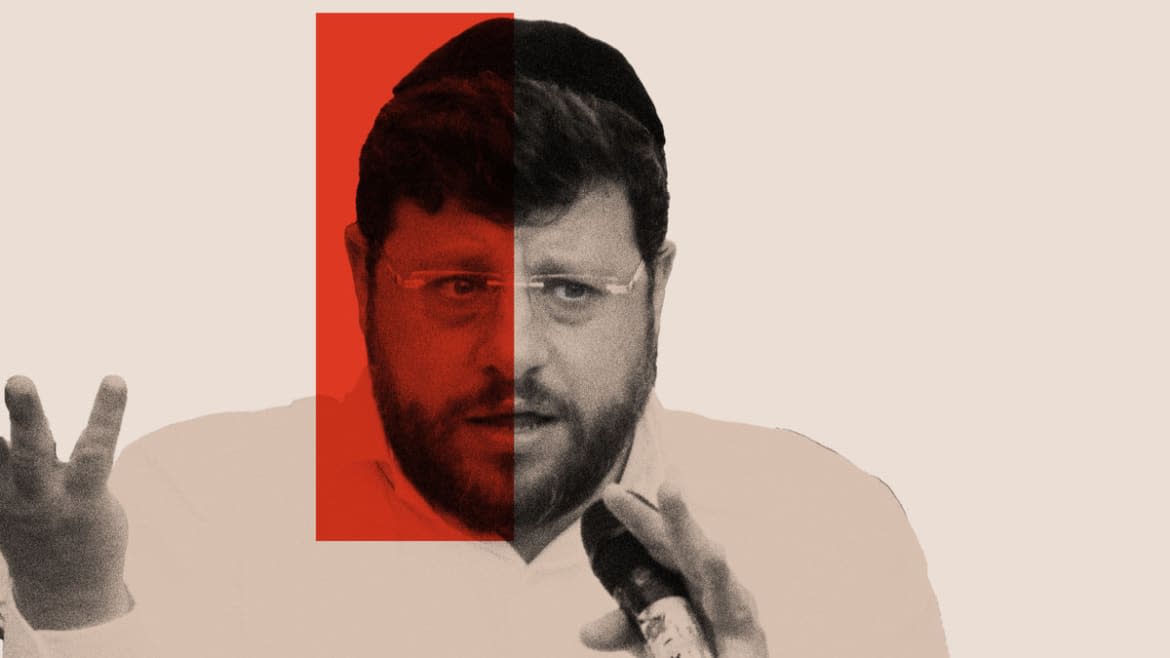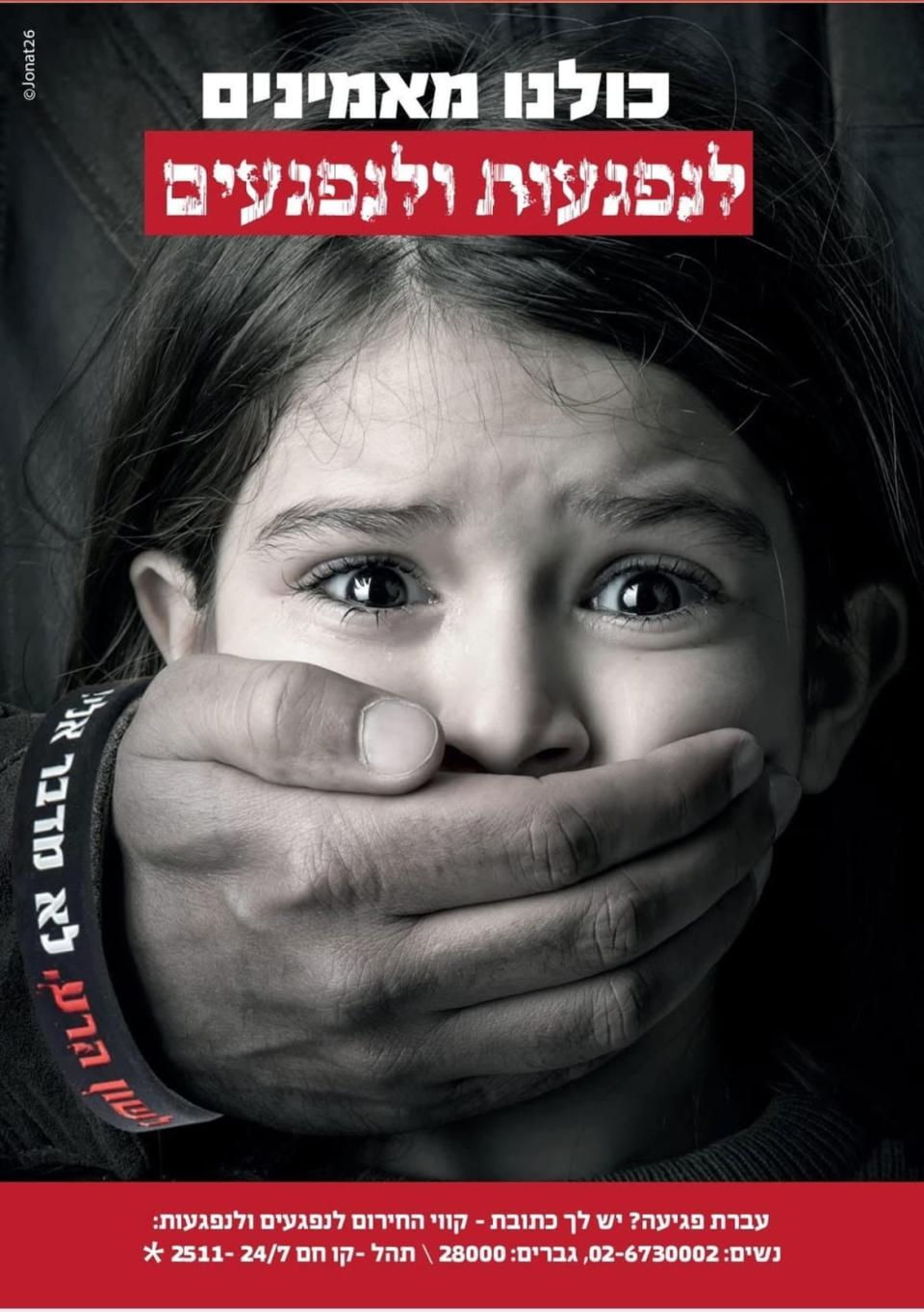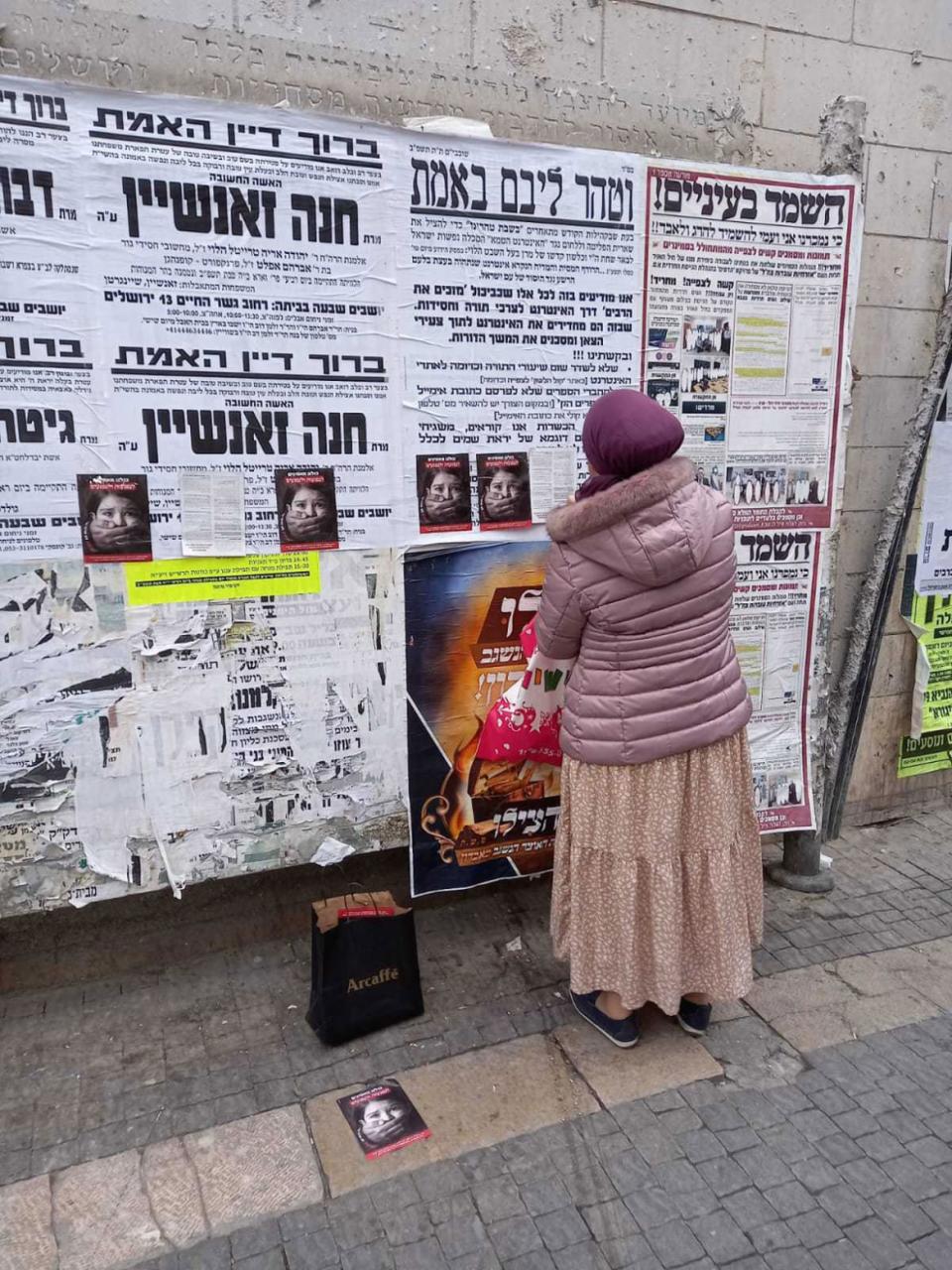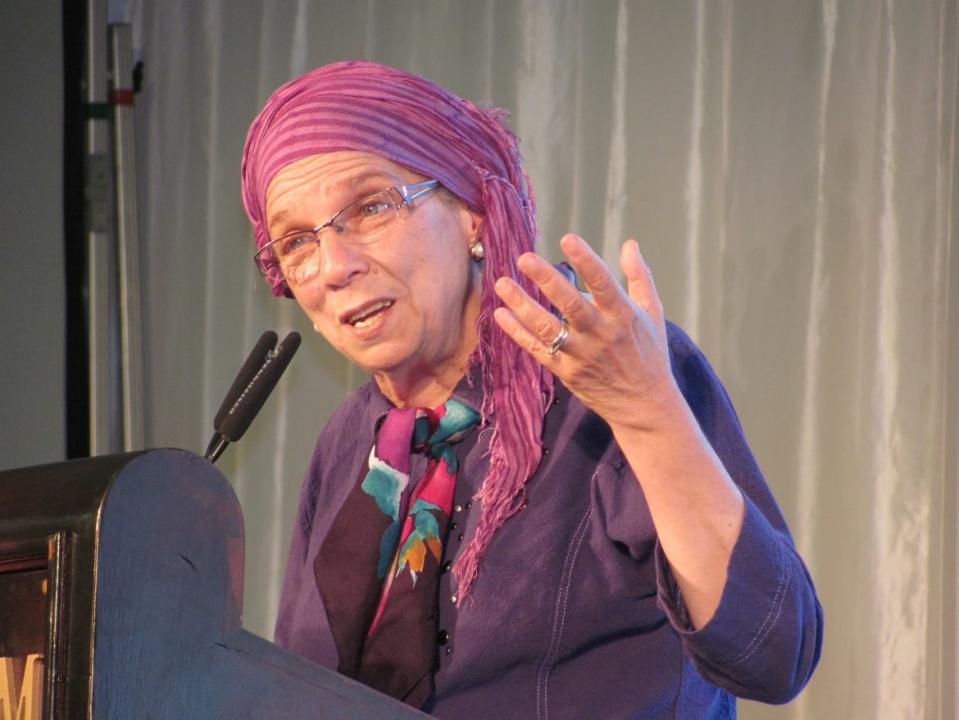How a Grassroots Movement Exposed an Abusive Children’s Author

- Oops!Something went wrong.Please try again later.
About a year and a half ago, I moved across the country to escape my Hasidic community.
After years as an activist and abuse advocate, I was exhausted and defeated. I had finally admitted to myself that the Haredi (or “ulra-Orthodox”) Jewish community was by definition extreme and impossible to truly reform without changing the very core of its beliefs and societal structure.
Which is why, when the story of Chaim Walder, the once-beloved and now-infamous children’s author and serial predator, broke in the Israeli publication Haaretz, I did my best to ignore it.
Walder, whose books were so popular that he was named a “protector of children” by the Israeli government, was accused of abusing and raping girls as young as 12 and 15. As with all too many abuse stories in the community, leadership, media, and most lay people were silent.
But then, almost miraculously, things started to shift. It began when Mordy Getz, a prominent Hasidic Judaica store owner in Borough Park in Brooklyn announced that his store would no longer carry Walder’s books. Then Walder was suspended from his weekly column and his radio show.
Dear customers,
It is with a heavy heart that we inform you that we will no longer carry the books of Chaim Walder in our stores due to shocking allegations recently revealed.
This decision was not made lightly and will no doubt come at a heavy financial cost, pic.twitter.com/mIv2jNPx8z— Mordy Getz (@MordyGetz) November 16, 2021
Things snowballed from there: Two prominent Israeli Haredi rabbis barred the reading of Walder’s books.
Two weeks later, Haaretz reported that a rabbinic court, which Walder refused to attend, had heard the testimony of 22 more alleged victims, including accusations of rape and abuse of boys as young as 9 and 12.
Four days later, Walder died by suicide.
It all seemed rather tidy, relatively speaking, a #MeToo moment for the Haredi world. But the true story, it turns out, was more complicated.
Every activist I spoke to in the course of writing this piece agreed on one thing: It is unlikely that a story as massively important as this could have come to light even five or 10 years ago. Chaim Wilder’s crimes were finally exposed in large part because abuse victims and advocates in the Haredi community, both in Israel and the United States, have become far more coordinated, due in no small part to social media.
Avigail Heilbronn is one of the founders of Lo Tishtok (“Don’t Be Silent”), a Haredi anti-abuse advocacy organization. Lo Tishtok began as a Facebook page that spread the stories of victims, and a large part of its rapid growth was that there were people desperate for a supportive outlet to share their stories and get around the traditional gatekeepers of these discussions: Haredi media outlets that have often shied away from the subject of abuse.
By providing outlets, Heilbronn and others built the trust of Haredi victims of abuse. She was one of the people who helped connect victims with Haaretz, while also emotionally supporting victims in the process of the investigation.
All-Girls School Slammed for Telling Ultra-Orthodox Parents to Shut Up About Rape Scandal
By all rights, the story should have been massive: Chaim Walder was one of the most popular Haredi children’s writers, comparable to J.K. Rowling in terms of how widely his books are read.
And yet the story still had to be pushed into prominence within the Haredi world. “The Haredi press was completely silent,” after the Haaretz story, recalled Pnina Pfeuffer, CEO of New Haredim, an Israeli progressive Haredi organization. “So we mobilized to make sure that there wasn't a silence.”
Her group and others coordinated to put pressure on Haredi media outlets through a combination of widespread social media activism and “back channel pressure” (most activists I spoke to were wary of sharing specifics about that pressure, in order to maintain relationships with those in power).
According to Penina, Avigayil, Asher, and other activists I spoke to, it was this push that made the story go from Haaretz, a publication either ignored or reviled by most Haredi Jews, to a mainstream story within the community. And, in Penina’s words, it would not have been possible without the activists who had found each other, often online, over the years: “If we didn’t have this network, it wouldn’t have worked.”
Within the Haredi community, as it has elsewhere, social media has helped activists circumvent traditional media and shift the balance of power and eventually lead institutions to follow their lead. When the Judaica store, Eichler’s, pulled the books, that signaled a shift that allowed others to take similar stances.
When the leader of one of the few anti-abuse organizations respected by (some) mainstream Haredi leaders, Amudim, wrote an op-ed calling out Haredi leadership in a relatively mainstream Haredi publication, leaders took notice.
“This set off a ripple effect,” recalled one source close to the Haredi leaders who first spoke out. “Leaders and rabbis realized silence won’t do it anymore.”

And then Walder died by suicide, and the backlash began.
Immediately following the news that Walder had shot himself by his son’s grave, the attacks against his victims and their advocates opened up in earnest.
First, mainstream Haredi publications wrote glowing obituaries of Walder, including the publication that had pulled his column. Gershon Edelstein, one of the most respected rabbinic leaders in the Lithuanian stream of Haredi Jewry, put out a statement that declared that anyone who uses the media to speak out against abusers is engaging in a form of Lashon Hara (gossip), a serious sin. Not only that, but, wrote Edelstein, “he is deemed a murderer.”
Edelstein, in other words, was saying that the victims and advocates who had spoken up about Walder had literally murdered him.
This declaration was picked up by others, with reports of teachers warning their students not to share “gossip” spreading like wildfire in Haredi online spaces and then beyond (including in a story in The Daily Beast about the letter one Brooklyn principal sent to parents, warning the not to speak about the case and declaring that it represented a “danger to ourselves and our children.”)
Another well-known rabbi, Yehoshua Eichenstein, wrote, “those who libeled [Walder] and published the libels everywhere, until he was ashamed to show his face outside, made him sick to his soul so much that he killed himself. Explain to the children in a clear way that this is called murder.”
At Walder’s funeral, attended by thousands, another rabbi asked: “How can we say our hands did not shed this blood?”
The message was clear: those involved in making his abuse public were not only wrong: they were killers.
And then one of Walder’s victims died by suicide.

The reports of 24-year-old Shifra Yocheved Horovitz’s death were devastating. One friend said that “she ended her life because her wounded soul could not stand the celebrations that were held for him.”
Victims, advocates, and others were spurred into action, with the pain of the loss of another victim pushing them forward. According to Meyer Labin, an activist who participated, hundreds of Jews joined a WhatsApp group with one goal: distribute hundreds of thousands of fliers into Haredi communities that declared support for victims while simultaneously calling out leaders for misusing the prohibition against Lashon Hara to silence those victims.
They crowdfunded that effort and raised tens of thousands of dollars to circulate 320,000 fliers in the most conservative, insular communities in Israel, largely shared by Haredi women, many of whom, according to an organizer who wished to remain anonymous, were themselves victims.
This marked one of the first times that online and offline activism merged in the Haredi world: a huge milestone given how many Haredi Jews do not use the internet. Seeing fliers directly calling out rabbinic and media authorities had a huge impact, making it clear that victims and their advocates were no longer on their own.
When Tziporah Heller, a well-known Haredi lecturer and author, declared that Walder had been punished through “Death by Shaming” and added that “Lashon hara is a killer” after the death of the victim, hundreds of Haredi Jews, especially women, responding with fury, saying that “I’m disgusted” and “This post made me want to vomit.”
The mainstream discourse finally started to shift as well: Mishpacha, a well-known American Haredi publication, published multiple articles supporting victims, including one by a respected rabbi who declared, “To them [the victims] we say in the name of the entire haredi community: our hearts are with you. We support you and we believe you, unconditionally. And we will do everything in our power as a community to build a safer and purer world for you.”

Tziporah Heller
As Pfeuffer of New Haredim saw it, “With this story, there was a change in the power balance between the public and the leadership. Meaning the leadership found themselves having to answer to the public, which they're not used to doing.”
And indeed, when hundreds of fans of a wildly popular lecturer like Heller attack her on social media, the discourse has in some sense shifted. Leaders are suddenly being forced to contend with the fact that their followers intend to hold them to account on the topic of abuse.
“The deeds that were done were evil,” Heller wrote in a follow-up to her much criticized initial post. “I think that you know me well enough to believe that I stand behind these words.”
That led to hundreds more angry comments before Heller limited who could comment.
She signed off with a last word, about how “The horrors of social media have come right into my own life. The semi-anonymity provided by sitting behind a screen allows for mob mentality, lynching and lack of human respect. You should all know better than that… Shaming in public can kill. I stand by that statement.”
That’s a form of progress, says Lebovitz, as “Institutional leaders are becoming more and more aware that if they don't get on board, they might not have a job. Or a constituency.”
But Shana Aaronson, director of Magen for Jewish Communities, another Israel anti-abuse advocacy organization, warned that the backlash was so intense that it also “moved the community backwards” in some ways.
And even with all of this previously pent-up anger finding an outlet, Asher Lovy, an activist with the US-based anti-abuse advocacy organization Zaakah (and a friend and previous collaborator of mine), argued forcefully that very little if any actual change occurred past raised awareness:
“There’s nothing systemic about the approach that's being taken by the community leadership, and it’s a systemic problem. You have to have a systemic solution. And they’re avoiding that at all costs.”
Even as some rabbis and other leaders are speaking out in a way that they didn’t before, he says, “it’s not making them wake up to anything. You aren’t seeing renewed calls for best practices based abuse prevention education in schools. You aren’t seeing anything put out about how you have to report to police. Nothing has changed, structurally speaking.”
Even now, activists are trying with limited success to raise awareness around a well-known owner of a music production company who is alleged to have been recorded appearing to admit to sexual abuse of minors.
The conclusion I’ve come to is that change has occurred, but not among the leadership, which is at most just dimly reflecting the far deeper demands for change from a growing grassroots movement.
Chaim Walder’s crime may never have come out had it not been for years of organizing, networking, and building by Haredi activists on the ground, empowered by their ability to use social media, WhatsApp, crowdfunding, and other tools to organize in ways previously unseen.
In that sense, I see hope. Perhaps not in the system, but in the will of people who desperately want to live lives where abuse is not rampant, and where they can create a more just world for their own children.
Get the Daily Beast's biggest scoops and scandals delivered right to your inbox. Sign up now.
Stay informed and gain unlimited access to the Daily Beast's unmatched reporting. Subscribe now.

